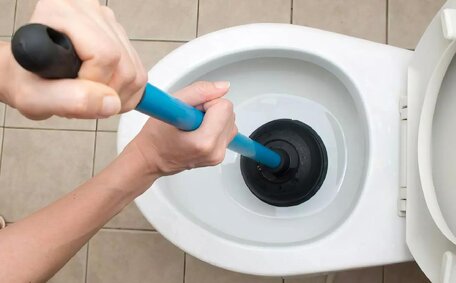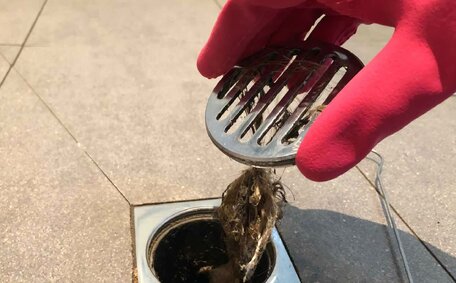
How to Prevent Household Blocked Drains
Blocked drains can be prevented by using drain strainers, avoiding pouring oils down drains, clearing hair from drains, and more tips from Seven Hills Plumbing.
Read MoreTo ensure safety and maintain high standards, maintenance and servicing of gas installations typically require a planning permit, protecting lives and property. Only qualified professionals with a tradesperson’s licence are authorised to perform gasfitting work, ensuring the task meets regulatory requirements.
Different types of gas fitting work in Australia require planning permits, each demanding specialised training, assessments, and permits. The main categories include:
In New South Wales, specific gas fitting projects that require a completed lower-level qualification often mandate a planning permit, issued by an authorised entity before work can commence. This includes when installing or altering any fixed gas appliance, flues, consumer piping and the broader gas system in residential and commercial settings, often after obtaining a lowerlevel qualification.
Seven Hills Plumbing complies with Victorian Government safety standards and mining industry regulation policies, ensuring gas and electricity consumer safety and serving as a comprehensive resource for students enrolling in gas fitting courses. we guarantee that all our tasks conform to the current gas standards and the gas installations regulations 1999 for every gas project, with more information available upon request.
If you’re considering the requirements 'do I need a building permit?' for installing systems in new buildings or to boost building energy with connected gas heaters, our services ensure full compliance. Learn more about our plumbing and gas fitting services by contacting us today; let us guide your project to meet all safety and legal benchmarks.
There are several classes of gas fitting licences required to legally perform gas work in Australia based on the scope and complexity of the job.
A Type A gas licence permits tasks such as the maintenance and repair of existing gas appliances, as well as minor installation work. This includes work like servicing heaters, cooktops and hot water systems.
Type C licences pertain to activities on LP gas, CNG and LNG systems within motor vehicle contexts, like performing conversions and servicing the gas parts in caravans and mobile food vehicles.
It’s essential for all gas fitters to be conversant with the latest Australian standards to ensure both competency and safety.
A Type A gas licence permits tasks such as the maintenance and repair of existing gas appliances, as well as minor installation work. This includes installing large commercial appliances, designing and installing industrial gas systems, and working on gas pipes with pressures above 200kPa.
Obtaining a General Gas Fitting Licence, also known as a Class G licence, demands certain qualifications for servicing gas systems and appliances.
The prerequisite course for a General Gas Fitting Licence focuses solely on crucial units, providing gas fitters with necessary training for a range of residential, commercial, and industrial tasks. Exceptions, like those for class I e appliances, may necessitate additional endorsements or licences.
Qualification requires submitting evidence of enrolment and completion of the essential course units, aimed at detailed training and assessments provided by an accredited institution. Gas fitters must renew their qualifications every three years through enrolment in relevant units, ensuring they remain skilled and updated with multiple study options for continuous training.
A General Gas Fitting Licence permits gas fitting on appliances and gas systems including:
Restricted gas fitters are limited to tasks they are explicitly licensed for, guaranteeing all work is performed accurately. Conducting gas fitting work without proper authorisation or supervision may lead to severe penalties and fines. Comprehending the parameters of a restricted licence is vital for adherence to gas safety regulations.
In various situations, obtaining a permit from local authorities is essential before commencing gas fitting work in Australia, with applicable fees and quoted estimates. This procedure forms part of a prerequisite course in bureaucratic navigation, including the acquisition of a gasfitting permit, and ensures adherence to gas safety statutes and regulatory measures.
Permits are typically required for gas fitting in scenarios such as:
For significant gas network connections on a property, a professional with the appropriate qualifications and planning permission is necessary. Gas fitters should always check with local councils if unsure, as regulations may vary more than expected across different regions.
Executing gas fitting tasks lacking the permits required can result in hefty penalties. At Seven Hills Plumbing, we handle the permit application process for all work requiring council approval, ensuring electricity consumer safety and compliance. Contact us to ensure your next gas project is fully compliant.
There are a few key steps involved in acquiring permits for new gas installations in Australia:
Acquiring the right permits may involve general building permits, planning permits, or particular gas fitting permits, depending on the work scope.
It’s vital to ensure that installations are carried out by certified gas fitters who hold the appropriate licence. Type B gas fitters are required for complex appliance installations.
Compliance certificates are typically issued to the permit holder after final inspections by a building surveyor or council, with variable fees influenced by inspection outcomes. Your gas fitter can coordinate these assessments and permit your project to secure certificate compliance approval as required.
Seven Hills Plumbing manages the entire permitting process for new gas installations, focusing on consumer safety and regulatory compliance.
Gas fitters should advise on permit needs for proposed changes.
The required permits may correlate with certifications that an individual has already attained:
The gas fitting permit application must include details like the appliance specifications, diagrams and installation location. A final inspection of the installation is usually required before sign-off. Fees apply for permits.
At Seven Hills Plumbing, our qualified gas fitters handle the permitting process for installing any type of gas appliance to ensure full compliance with regulations. We can advise on all paperwork and approvals required based on the specifics of your new gas appliance.
To apply for a gas fitting permit in Australia, the qualification prerequisite only encompasses paying for units as part of the key steps:
At Seven Hills Plumbing, we handle the entire permitting process on your behalf. Our fully licenced gas fitters will advise what permits are needed and manage all council liaison and paperwork. Contact us today to ensure your next gas installation or alteration is compliant with all regulations.
When undertaking any gas fitting work in Australia, it is crucial to use qualified professionals who hold the proper licences. Gas fitters must have a licence appropriate for the specific work, such as Type A or Type B for basic or complex jobs respectively. Gas fitters must have a licence appropriate for the specific work, such as Type A or Type B for basic or complex jobs respectively. They have fulfilled all necessary training and evaluations needed to be certified to safely and lawfully carry out gas assignments. Our commitment to electricity consumer safety is paramount, ensuring that all work must comply with regulations, with our professionals qualified in gas fitting covering all units comprehensively to perform with uncompromising quality.
By ensuring that all units are entirely encompassed, you’ll pave the way towards total compliance with regulations and standards, facilitated by fully licenced gas fitters.
Disregarding regulations endangers both gas electricity consumer safety, potentially resulting in strict penalties:
It’s imperative that all gas fitting tasks must be completed in accordance with proper permitting protocols and executed by qualified technicians who possess the appropriate licence class. Non-compliance poses major safety risks and attracts steep penalties.
At Seven Hills Plumbing, we stay abreast of all regulations to ensure gas work adheres to the necessary standards. Our skilled, licenced gas fitters manage the permitting process, ensuring uncompromising gas electricity consumer safety and regulatory compliance. Contact us today for safe, legal gas solutions.
Following proper gas fitting safety protocols is critical for electricity consumer safety to avoid potential hazards. Gas fitters have an ethical obligation to ensure electricity consumer safety by only undertaking work they are qualified for.
All gas appliances and fittings must comply with Australian Standards, ensuring robust measures are in place for electricity consumer’s safety to minimise risks of fire, explosion, gas leaks, and carbon monoxide poisoning. Employing licenced gas fitters and ensuring compliance with all necessary permits is vital for protecting the electricity consumer, with consistent inspections and strict adherence to the licenced scope securing the safety of residents and property. By partnering with reputable experts like Seven Hills Plumbing, who meticulously cater to tasks inside and out, gas safety and technical needs of the electricity consumer are expertly addressed.
Performing gas fitting work in Australia requires strict compliance with regulations to ensure safety. Performing gas fitting work in Australia requires strict compliance with regulations to ensure safety. Performing gas fitting work in Australia requires strict compliance with regulations to ensure safety.
choosing licenced professionals, notably those who have student successfully completed their training and met all unit prerequisites, and who conform to stringent permit protocols, is essential for ensuring electricity consumer safety.
At Seven Hills Plumbing, our gas fitters are diligent in covering all units, providing more information on proficiency and obtaining the requisite licences for tasks across residential, commercial, and industrial spheres. Consumers should only use qualified gas fitters like Seven Hills Plumbing who follow all regulations.
We manage the permitting process to ensure compliance and safeguard the gas electricity consumer safety. Non-compliance poses major risks, with large fines and prosecution possible.
Should you have questions about installation maintenance, our gas fitting services, permit acquisition, or licensing, Seven Hills Plumbing is eager to engage with you as your preferred plumbing specialist. Our proficient team ensures your project, linked to the gas network or any other utility, is completed with adherence to safety, legal standards, and timings.
Blocked drains can be prevented by using drain strainers, avoiding pouring oils down drains, clearing hair from drains, and more tips from Seven Hills Plumbing.
Read MoreNoticing signs of a household blocked drain like slow drainage, gurgling sounds, foul odours or overflowing water indicates you need an emergency plumber. Call Seven Hills Plumbing to dispatch a plumber to clear your blocked pipes before further damage.
Read MoreRestaurants and cafes frequently deal with blocked kitchen drains due to grease, fat and food buildup. Prevent clogged pipes through scraping plates, using drain strainers and avoiding pouring fats/oils down sinks. Or call a professional plumber to hydro jet pipes and permanently clear blockages.
Read MoreSeven Hills, 2147 NSW
We will call back as soon as possible.




